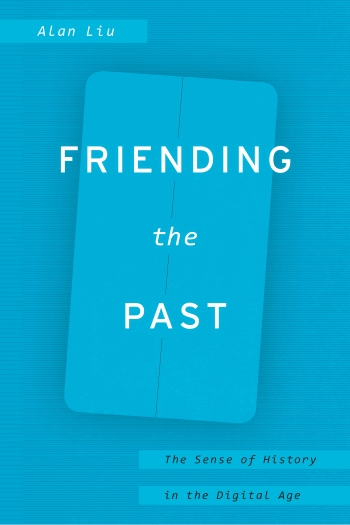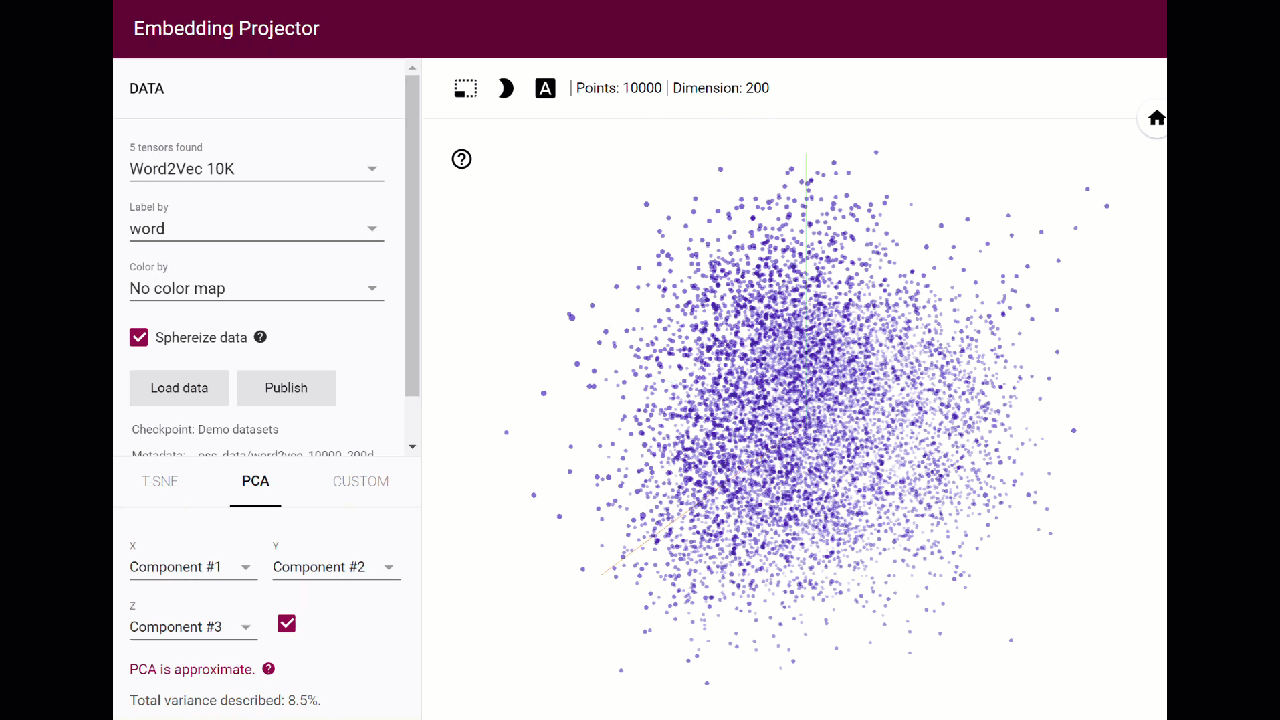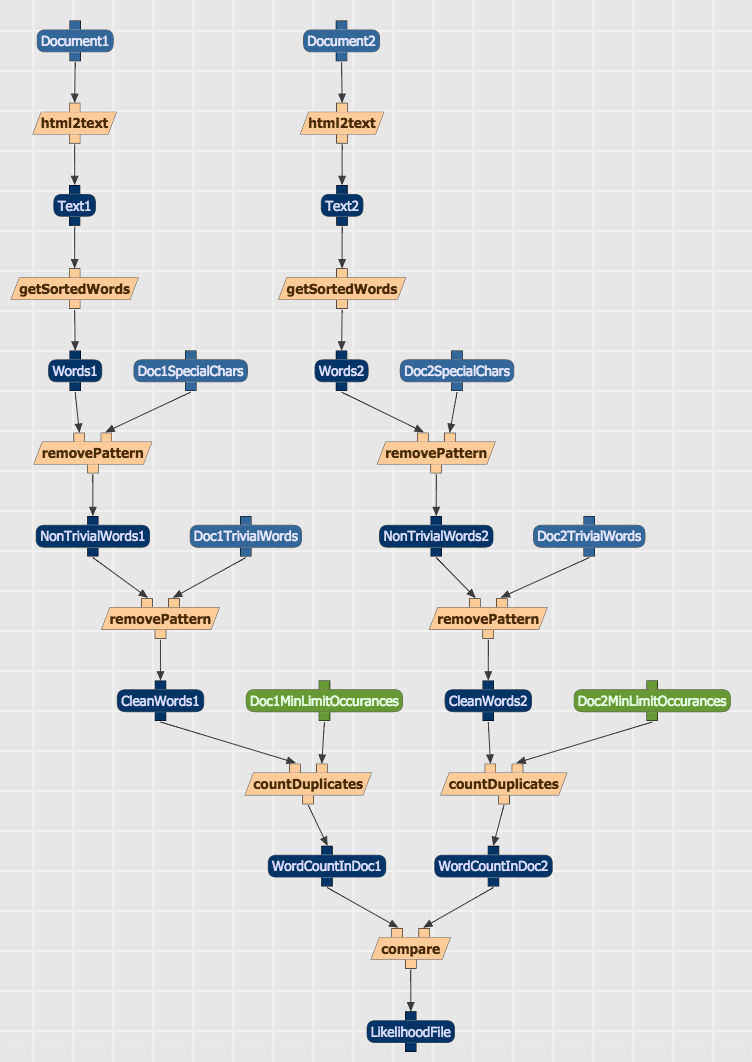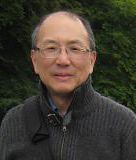| 2006 |
ProfileCategories Home Home
|
Recent:
- Blog essay: “Humanities Definitions Research Project: An Experiment with Agentic AI.” 5 October 2025.
- Article: “Data Science and the Post-Liberal Arts University.” Critical Inquiry 51, no. 4 (2025): 597–618. https://doi.org/10.1086/735621.
- Plus: “Liberal Arts Pantocrator: Addendum to ‘Data Science and the Post-Liberal Arts University.’” KCWorks, 24 Sept 2025. https://doi.org/10.17613/vnybw-f6a84.
- Article: “Messages and Values in the Age of Machine Learning: From Postcards to Social Media,” Prace Kulturoznawcze 26, no. 4 (2023): 125–29, https://doi.org/10.19195/0860-6668.26.4.8.
- Commencement speech: “What is Good Writing in the Age of ChatGPT?” (18 June 2023)
- Materials related to Agrippa (A Book of the Dead) owned by Alan Liu
- Blog essay: “Theses on Large Language Models and ‘Good’ Writing” (4 December 2022)
 Friending the Past: The Sense of History in the Digital Age. Chicago: University of Chicago Press, 2018
Friending the Past: The Sense of History in the Digital Age. Chicago: University of Chicago Press, 2018 “Digital Humanities Diversity as Technical Problem” (full text of talk presented at MLA 2018)
“Digital Humanities Diversity as Technical Problem” (full text of talk presented at MLA 2018)- Open Letter to the Polish Government: “The Fate of Cultural Studies in Poland” (1 January 2018)
 Blog essay: “Assessing Data Workflows for Common Data ‘Moves’ Across Disciplines” (6 May 2017)
Blog essay: “Assessing Data Workflows for Common Data ‘Moves’ Across Disciplines” (6 May 2017)- Article: ”Hacking the Voice of the Shuttle: The Growth and Death of a Boundary Object.” Social Media Archeology and Poetics. Ed. Judy Malloy. Cambridge, MA: MIT Press, 2016. (Full text — open-access author’s pre-copy-edited final version in institutional repository)
- Article: “Is Digital Humanities a Field? — An Answer from the Point of View of Language.” Journal of Siberian Federal University: Humanities and Social Sciences 7 (2016): 1546-1552.
- Article: ”N + 1: A Plea for Cross-Domain Data in the Digital Humanities.” Debates in the Digital Humanities 2016. Ed. Matthew K. Gold and Lauren F. Klein. University of Minnesota Press, 2016.
- Blog essay: Drafts for Against the Cultural Singularity (book in progress) (2 May 2016)
I am Distinguished Professor Emeritus in the English Department at the University of California, Santa Barbara, where I taught from 1987 to 2025. I was also an affiliated faculty member of UCSB’s Media Arts & Technology graduate program. At the beginning of my career (1979-1986), I was Assistant Professor and then Associate Professor in Yale University’s English Department and British Studies Program.
I began my research in the field of British romantic literature and art. My first book, Wordsworth: The Sense of History (Stanford Univ. Press, 1989), explored the relation between the imaginative experiences of literature and history. In a series of theoretical essays in the 1990s, I explored cultural criticism, the “new historicism,” and postmodernism in contemporary literary studies.
Subsequently, I was an early and now continuing voice in the “digital humanities” field. This started in 1994, when I created my Voice of the Shuttle Web site for humanities research. That was the era when I began to study information culture as a way to close the circuit between the literary or historical imagination and the technological imagination. In 2004, I published my The Laws of Cool: Knowledge Work and the Culture of Information (Univ. of Chicago Press). In 2008, I also published from Univ. of Chicago Press my Local Transcendence: Essays on Postmodern Historicism and the Database. A new book is appeared from the same press in 2018: Friending the Past: The Sense of History in the Digital Age.
In the late 1990’s, I founded the NEH-funded Teaching with Technology project at UC Santa Barbara called Transcriptions: Literature and the Culture of Information, and my English Dept’s undergraduate specialization on Literature and the Culture of Information. During 2002-2007 I was a member of the Board of Directors of the Electronic Literature Organization (ELO) and chair of the Technology/Software Committee of the ELO’s PAD Initiative (Preservation / Archiving / Dissemination of Electronic Literature). Digital initiatives I then led in the 2000s include Transliteracies: Research in the Technological, Social, and Cultural Practices of Online Reading, a University of California multi-campus, collaborative research group (2005-10); and RoSE (Research-oriented Social Environment), a software project funded by a NEH Digital Humanities Start-up grant (2011-12) that is the culmination of Transliteracies.
I founded and am co-leader of the international 4Humanities advocacy initiative in 2010. During 2017-2021, I was Principal Investigator of the 4Humanities WhatEvery1Says (WE1S) research project, which was supported by a $1.1 million grant from the Andrew W. Mellon Foundation. WE1S digital methods to study a big-data corpus of public discourse about the humanities, and created resources and toolkits for speaking up for the values of the humanities in today’s society. In 2022-2023, I chaired the Modern Language Association’s Committee on Information Technology. Currently I am focusing on co-founding and serving as co-president of the Center for Humanities Communication.
